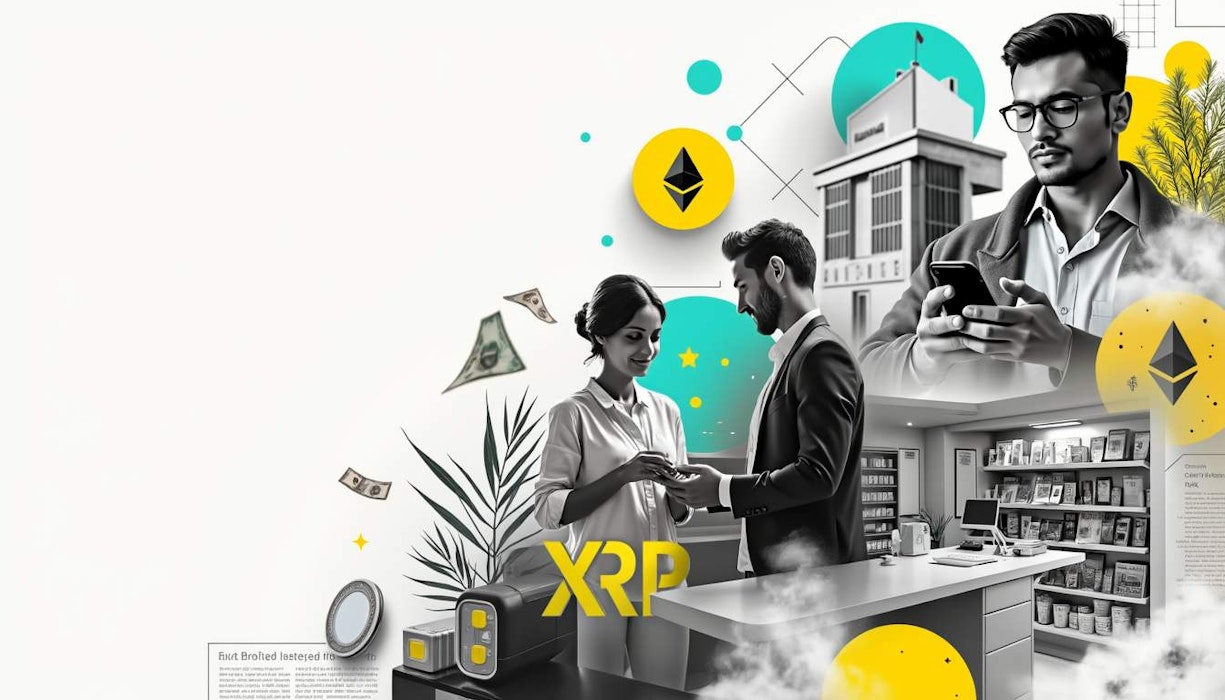Is Ethereum's reign coming to an end? With the emergence of competitors like XRP, XDC, and Hedera, some industry experts are starting to doubt. Are these new entrants poised to capture market share, or can Ethereum maintain its foothold?
What Are the Signs of Ethereum's Declining Dominance?
Ethereum, often considered the backbone of the cryptocurrency market, is facing multiple challenges that have led to skepticism about its sustainability. Many in the crypto space are questioning whether it can continue to hold its position as the second-largest cryptocurrency by market cap. Issues like high transaction fees and scalability concerns are affecting its usability. Moreover, the volatility of Ethereum has been alarming, being four to five times that of the S&P 500 over the last 60 days. Is this a sign that investors are losing faith?
Decentralization has always been Ethereum's claim to fame, but is that still valid? A significant concentration of ETH is held by a small number of addresses, raising eyebrows among critics. Will Ethereum's ability to adapt and innovate be enough to keep it relevant, or will it fade in the face of stronger competitors?
Are Alternative Cryptocurrencies Ready to Take Over?
Emerging cryptocurrencies like XRP, XDC, and Hedera are stepping into the spotlight, offering what seems to be more efficient and cost-effective solutions than Ethereum. XRP has become a frontrunner in this regard, known for its minimal transaction fees and rapid transaction times—3 to 5 seconds for $0.0002. Will these features attract small businesses looking to streamline their cross-border payments?
XDC Network is making waves with its DPoS consensus mechanism, achieving over 2,000 transactions per second at a cost of roughly $0.000074 each. Does this make XDC a more accessible option for frequent transactions compared to Ethereum's fluctuating gas fees?
Hedera is also gaining traction, with its own hashgraph consensus algorithm that offers both speed and security. Its EVM-compatible environment allows for the deployment of Solidity smart contracts, but would you consider switching to Hedera for its superior scalability and lower costs?
What Regulatory Changes Are on the Horizon?
The regulatory landscape is also shifting, which could favor alternative cryptocurrencies. Potential changes could lead to a more balanced playing field for all cryptocurrencies, not just Ethereum. The White House's Executive Order in March 2022 emphasized consumer protection and responsible innovation. Could this be a precursor to universal regulations?
Proposed SEC rules may extend regulatory scrutiny to encompass all blockchain and cryptocurrency platforms. If implemented, might this encourage institutional investment in XRP and other cryptocurrencies, bolstering their legitimacy?
Legislative initiatives like the Digital Commodities Consumer Protection Act (DCCPA) aim to provide a unified regulatory framework for cryptocurrencies. Would a standardized approach simplify compliance for businesses, benefiting those operating across state lines?
How Can Small Business Owners in Latin America Leverage XRP?
For small business owners in Latin America, the rise of XRP could offer more efficient cross-border payment solutions. High fees and fragmentation characterize the region's payment landscape. What if XRP, through Ripple's global payments network, could provide real-time settlement and local currency payouts?
Low transaction fees associated with XRP can significantly lower costs for small businesses. Could this make them more competitive in the global market and contribute to financial inclusion?
What Strategies Can Individuals in Hyperinflationary Economies Use?
Individuals in hyperinflationary countries may find alternative crypto platforms more beneficial than Ethereum for saving. Cryptocurrencies with a limited supply like Bitcoin could better resist inflation than Ethereum's open-ended supply.
Stablecoins could provide enhanced stability. What other strategies could include inflation-resistant cryptocurrencies like Cardano (ADA) and Binance Coin (BNB)?
DeFi platforms might allow users to lend and borrow stablecoins against other cryptocurrencies. Will this offer more stability compared to using Ethereum alone?
In short, alternative platforms may offer diversified ways to mitigate inflation's impact. Are you ready to explore other options?
